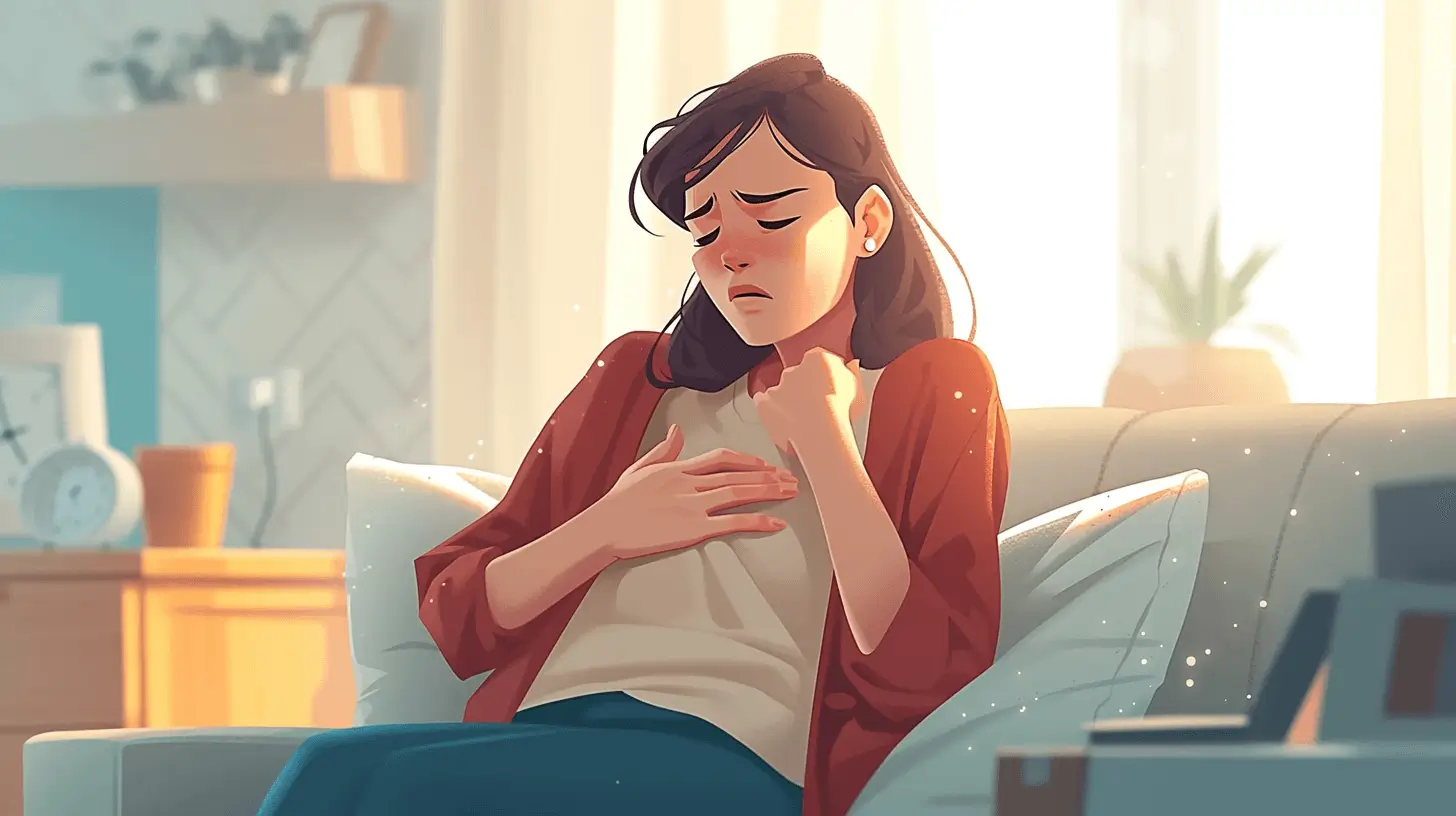Dyspnea

Dyspnea, known as shortness of breath, is the sensation that you can’t get enough air into your lungs. It might feel like your chest is tight, you’re gasping for air, or you’re working harder to breathe. Dyspnea can be described as “air hunger,” chest tightness, or the need to work harder to breathe. It can often be a symptom of another underlying condition, heart and lung problems, asthma, allergies, anxiety, or Chronic obstructive pulmonary disease (COPD). Acute Dyspnea can arrive suddenly and doesn’t last long (hours to days). Chronic Dyspnea can persist for weeks or longer, often due to one or more of the underlying health conditions.
Symptoms:
1. Out of Breath: Feeling like you can’t catch your breath or get enough air in your lungs.
2. Tightness in Your Chest: A sensation of constriction or pressure in the chest area.
3. Air Hunger: Feeling hungry for air, as if you’re not getting enough oxygen.
4. Inability to Breathe Deeply: Some may experience dyspnea during mild exertion, where you feel unable to take deep breaths.
5. Suffocation: A feeling of suffocation or being unable to breathe properly.
6. Heart Palpitations: Irregular or rapid heartbeats.
7. Coughing: Sometimes, dyspnea is accompanied by coughing.
Treatments:
1. Stop Smoking: quitting smoking can significantly improve lung function.
2. Avoid Pollutants and Allergens: Minimize exposure to environmental toxins
3. Weight Management: If overweight, losing weight can alleviate strain on your respiratory system.
4. Avoid Exertion at High Elevations: High altitudes can exacerbate dyspnea.
5. Heart and Lung Conditions: Addressing heart failure, COPD, asthma, is crucial.
6. Anemia: Treating low red blood cell levels can improve oxygen transport.
Medications:
The following medications have been gathered from various sources and have not been vetted. They are listed for you to research and better understand your options when speaking with your doctor. WE HAVE NO SPECIFIC INFORMATION THAT SUGGESTS THESE MEDICATIONS WILL BE HELPFUL FOR THIS OR ANY LONG COVID RELATED CONDITION.
DO NOT TAKE THESE MEDICATIONS WITHOUT THE EXPRESS RECOMMENDATION OF A MEDICAL PROFESSIONAL.
1. Bronchodilators: help relax the airway muscles, albuterol, and ipratropium
2. Steroids (Corticosteroids) Prednisone
3. Anticoagulants: Enoxparin (Lovenox), warfarin (Coumadin), heparin
Our Symptoms
Property of The Lovidia Collective LLC. ~ Copyright 2024








